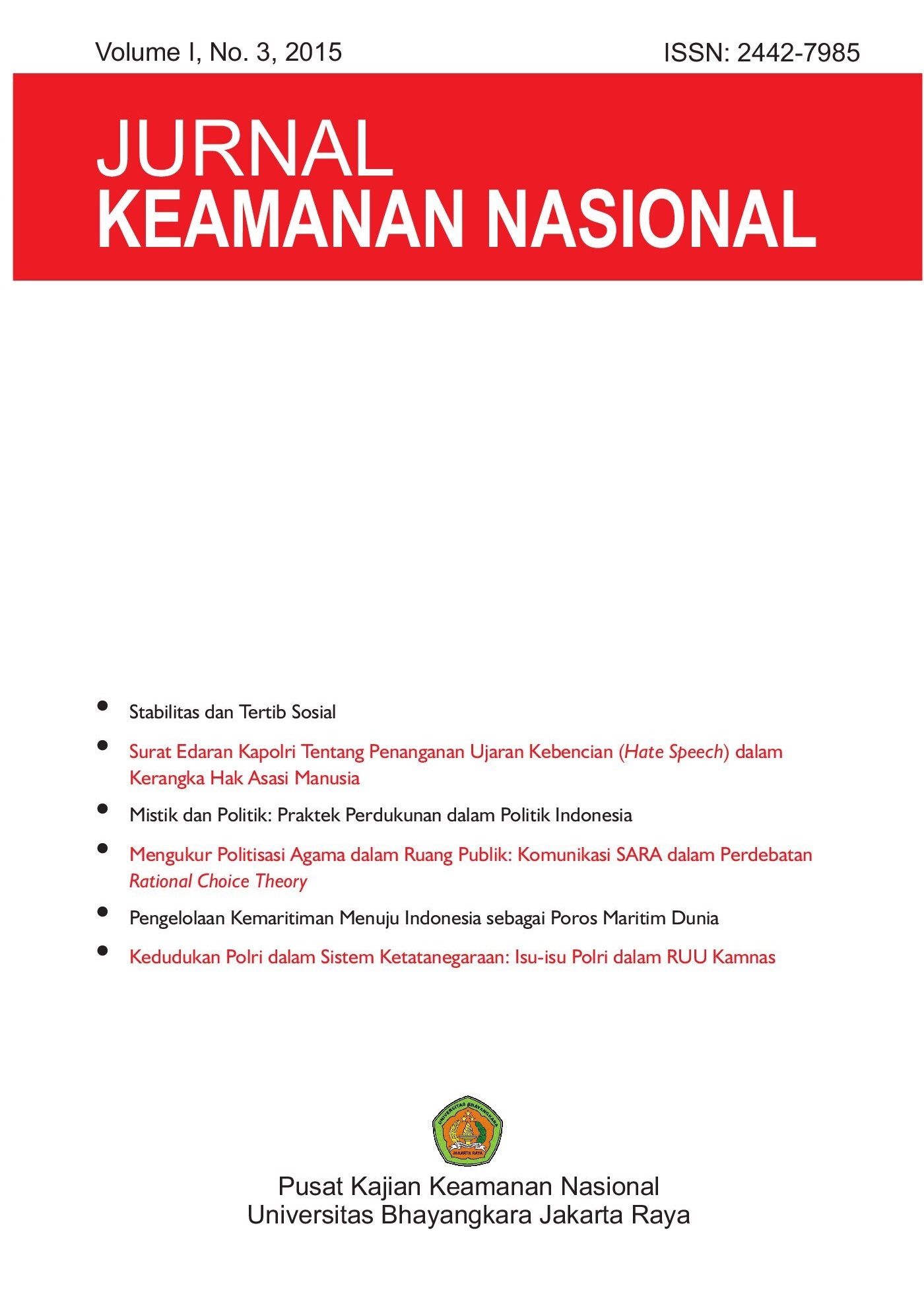Surat Edaran Kapolri Tentang Penanganan Ujaran Kebencian (Hate Speech) dalam Kerangka Hak Asasi Manusia
Keywords:
HAM, Ujaran Kebencian, Hukum, dan KebebasanAbstract
Tulisan ini mendiskusikan Ujaran Kebencian (Hate Speech) dalam Diskursus HAM. Hate speech merupakan konsep yang sangat rentan
berhadap-hadapan dengan hak berpendapat dan berekspresi. Titik singgung ujaran kebencian dalam kerangka HAM berada pada dua diskursus hak, yaitu: a) kebebasan beragama atau berkeyakinan; b) kebebasan berekspresi dan berpendapat, c) perlindungan ras dan etnik. Secara konsep ataupun praktik, ujaran kebencian sering kali diterapkan secara berbeda-beda, baik di tingkat global ataupun praktik Negara-negara di dunia. Dengan pendekatan HAM, ada 6 (enam) hal yang harus dilihat di dalam Surat Edaran Kapolri tentang penanganan ujaran kebencian (Hate Speech), yaitu: 1) elemen kejahatan (element of crimes); 2) basis subyek tindakan kejahatan; 3) metode atau cara kejahatan dilakukan; 4) tujuan dari tindakan itu sendiri; 5) Potensi efek dari ujaran kebencian; 6) Pendekatan yang digunakan untuk menangani hate speech.
Downloads

Downloads
Published
Issue
Section
License
Please read and understand the copyright terms for submissions to this journal.
Copyright Notice
The Jurnal Keamanan Nasional is under the Creative Commons Attribution 4.0 International (CC-BY 4.0) License, according to which:
1) Authors retain copyright and grant the journal the right to first publication, with the work simultaneously licensed under the Creative Commons Attribution (CC-BY 4.0) that allows the sharing of articles published with the acknowledgement of authorship and the initial publication in this journal.
2) The authors are authorized to make additional contracts separately for distribution of the version of the work published in this journal (for example, publication in an institutional repository or as a chapter of the book), as long as there is recognition of authorship and initial publication in this journal.
3) Authors are authorized and encouraged to publish and distribute their work online (for example, in institutional repositories or on their personal pages) at any time before or during the editorial process, as it increases the impact and reference of the published work.












